Politics and Government
Ruth E. Fizdale
Ruth E. Fizdale is credited with making modern social work a profession. Fizdale helped transform social work from a charitable volunteer activity to a paid profession, through her development of a fee-for-service, nonprofit counseling firm.
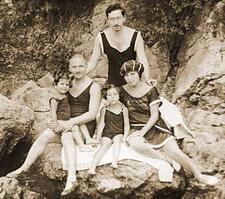
Gisi Fleischmann
Gisi Fleischmann was a steadfast and brave fighter in the underground resistance to Nazism during World War II. Many times, she refused to escape Slovakia to safety and instead chose to stay and fight for her people to the bitter end.
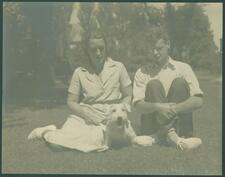
Magdalen Flexner

Flora Benenson Solomon
Flora Benenson Solomon’s deep commitments to welfare and Zionism traversed geographical boundaries and social groups. From her efforts to improve the lives of Jewish and Arab communities in Palestine to the her work on behalf of garment workers in England, Solomon maintained an unwavering commitment to Zionism, which acted as a sustainer of Jewish identity in England.
Sarah Feiga Meinkin Foner
Born into a family that encouraged her love of Jewish learning, Sarah Foner asked to learn Hebrew when she was only five years old and published her first novel in her twenties. During her lengthy writing career, Foner’s publications often reflected her interest in Jewish and women’s issues and centered notably independent female characters.
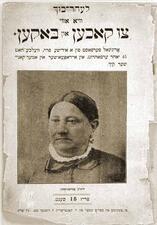
Food in the United States
Food and foodways are a critically important area of documenting and deciphering the evolving experience of American Jewish women from the earliest days of immigration to the present. Food is a lens into American Jewish women’s worlds of family, religion, identity, work, political action, entrepreneurship, and more as they have encountered the forces of assimilation, anti-Semitism, systemic racism, sexism, changing consumer economies, and the long women’s movement.
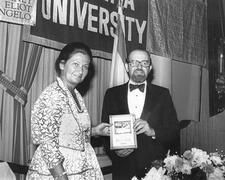
Modern France
From the French Revolution to the twenty-first century, Jewish women in France have undergone radical legal, political, cultural, and religious transformations. Seizing upon the increasing number of opportunities available to them, both as Jews and as women, Jewish women have left their marks on all areas of French society.
Lee Weiss Frank
Lee Weiss Frank worked as a reporter and radio show host, was involved in the Women’s International League for Peace, and was a prominent public figure in Philadelphia. Her legacy extends beyond her community work and journalism, as she was a prolific artist painting in oil and in watercolor.
Käte Frankenthal
A stubborn nonconformist from an early age, Käte Frankenthal was a physician and politician active in Germany’s Social Democratic Party. While running her own successful private practice, she was active in sex reform legislation and played a prominent role in the Federation of Women Physicians.
Henrietta Franklin
Henrietta Franklin (née Montagu) was a leading British educationist and suffragist and a supporter the Liberal Judaism movement, pioneered by her sister Lily Montagu.
Myra Ava Freeman
The first Jew to be appointed lieutenant governor of a Canadian province and the first woman to hold the office in Nova Scotia, Myra Freeman was born in St. John, New Brunswick. Serving as Lieutenant Governor from 2000 until 2006, Freeman made her mandate the redefinition and democratization of the largely ceremonial office. In 2003 she was named First Honorary Captain (Navy) of Maritime Forces Atlantic, Her Majesty’s Canadian Forces.
Stella Heinsheimer Freiberg
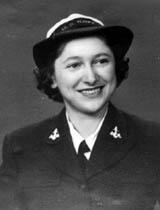
Bernice Sains Freid

Recha Freier
German-born Recha Freier founded Youth Aliyah in 1933, which assisted in sending Jewish European teenagers to Palestine prior to World War II to be trained as agricultural pioneers on kibbutzim. Although she was responsible for saving the lives of many thousands of Jewish youth, Freier’s efforts were not officially acknowledged until 1975, when she was eighty-three years old.
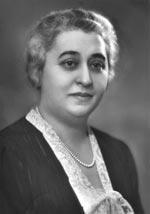
Lillian Freiman
Lillian Freiman was unquestionably the most prominent Jewish woman in Canada in the interwar period. Freiman was exemplary for her degree of independent social activism and devotion to an array of Jewish and non-Jewish social causes.
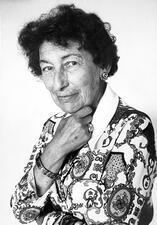
Gisèle Freund
Gisèle Freund was a European intellectual and writer, a sociologist, a historian of photography, a socialist, a Jew, and one of the world’s greatest photographers.From her photographs of a rally in Berlin to her insightful portraits of Evita Perón, Freund captured the early twentieth century. In 1991, she was the first photographer honored with a retrospective at the Musée National d’art Moderne.
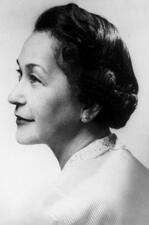
Miriam Freund-Rosenthal
Marta Friedländer-Garelik
Just the third Austrian woman to establish a legal practice, Marta Friedländer-Garelik’s law career was cut short by the 1938 Anschluss. She was able to escape Vienna through passage to Ireland, where she discovered her talent for handicrafts. After immigrating to Texas in 1941, Friedländer-Garelik started her own very successful knitwear factory.
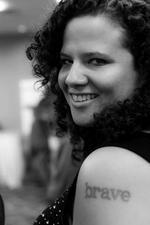
Jaclyn Friedman
Charlotte Friend
Cell biologist and immunologist Charlotte Friend discovered a virus that could transmit leukemia and made major contributions to our understanding of cancer and its causes. She served as director of the Center for Experimental Cell Biology at Mount Sinai Medical School, and later as the president of the New York Academy of Sciences and the American Association for Cancer Research.
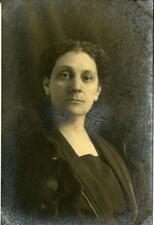
Ida Weis Friend
Ruth Bernard Fromenson
Frieda Fromm-Reichmann
Frieda Fromm-Reichman was a German-American psychiatrist best known for her innovations in the psychotherapeutic treatment of schizophrenics and manic-depressive patients previously deemed unsuitable for psychoanalysis. Towards the end of her life, Fromm-Reichman received international recognition for her creative and insightful contributions to psychotherapy.
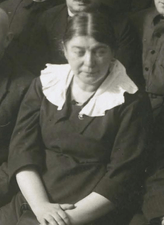
Esther Frumkin
Esther Frumkin was the pseudonym of the Jewish educator, writer, and socialist-turned-communist Malkah Lifchitz. Active in the Russian and later Soviet leftist political scene in the early twentieth century, Frumkin was an independent thinker and a unique woman in the Jewish labor movement. However, she drew criticism from both Jewish and Communist leaders and died in a Soviet detention camp in 1943.
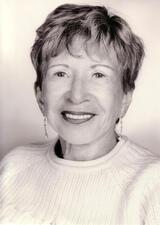
Sonia Pressman Fuentes
Sonia Pressman Fuentes, the first female attorney in the office of the general counsel of the Equal Employment Opportunity Commission, helped extend the Civil Rights Act’s protections of equal opportunity to all people regardless of gender.


